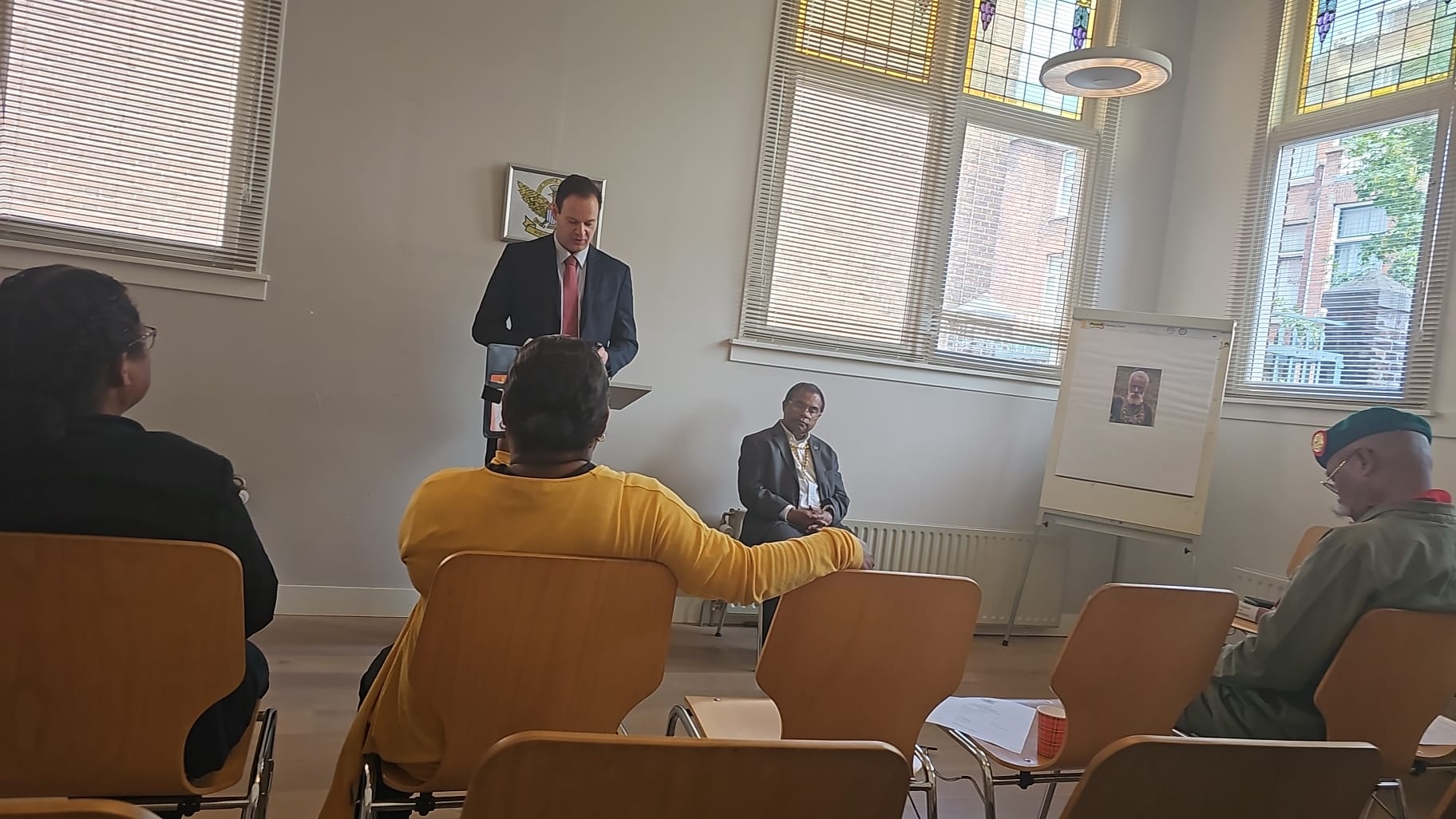The following text is a translation of my speech held at an event in The Hague, the Netherlands, celebrating the proclamation of the Republic of West Papua on 1 July 1971.
Good afternoon,
It is an honor to be here to commemorate a pivotal moment in West Papua’s history: the Unilateral Declaration of Independence of July 1, 1971. This day symbolizes the hopes, dreams and struggle of the Papuan people for freedom and self-determination. While the 1971 declaration did not lead to the creation of an independent nation, it did create a moment in history that serves as a beacon of hope for historical justice. Moreover, this event, and its annual commemoration, remains a moment when we can address the injustice that Papuans have and are facing.
More than half a century ago, the Papuans were promised an independent country by the Dutch in 1962, and self-determination by the Indonesians in 1969. However, these promises turned out to be false, leaving the Papuans in a dependent position and continuing to suffer from oppression and discrimination.
When we look at what has happened since 1971, we must ask ourselves what the future holds for West Papua. The international community, including Indonesia, regularly proclaims its commitment to peace and justice. But how do these promises manifest themselves?
The reality of the Papuan struggle
The Papuan struggle for historical justice is not an isolated event. It is part of a larger story of indigenous and marginalized peoples around the world fighting for their rights and recognition. Since the 1971 declaration, Papuans have faced systematic discrimination, human rights violations and exploitation of their rich natural resources. These challenges persist for Papuans, both in West Papua and in the diaspora in Europe, Australia and beyond.
The international political arena today offers a complex landscape for the realization of self-determination. Yet there are signs of hope. Global movements for the rights of indigenous peoples, increased scrutiny of the human rights record, and the rise of digital platforms that allow unheard voices to be heard have created new opportunities for advocacy and change.
Aspects of self-determination
Self-determination is a multifaceted concept that emphasizes sovereignty and the will of the people. It can take countless forms, each tailored to the unique context and aspirations of the people. It does not necessarily mean an independent state with a seat in the United Nations. For West Papua, several aspects of self-determination can shape a promising future:
First, cultural and social autonomy ensures the protection and promotion of Papuan culture, languages and traditions. This form of self-determination recognizes the importance of preserving the unique identity of the Papuan people.
Second, there is political autonomy, which consists of establishing local governance structures that enable Papuans to take control of their political affairs.
Third, there is economic self-determination that allows Papuans to manage and benefit from their natural resources. This includes creating economic policies that prioritize the development and well-being of local people, and ensure that revenues from natural resource extraction benefit the community.
The fourth option is full independence: This means full sovereignty and international recognition as an independent state. Although this is the most ambitious form of self-determination, it remains a legitimate aspiration for many Papuans. After all, West Papua has a unique history and was promised a place on the world stage in 1962 and 1969, but was denied of their rights as a people.
The role of the international community
The role of the international community in overcoming the marginalization of the Papuans is of great importance. This must go beyond rhetoric and include concrete action to support the Papuan cause. The role of the international community and international organizations is indispensable in the pursuit of self-determination for West Papua. By raising awareness, exerting diplomatic pressure, supporting economic development and advocating for legal protection, these international institutions can contribute to achieving self-determination for Papuans in West Papua.
Challenges
The Papuans have had many opportunities to raise the issue of West Papua in international organizations, but at the same time they have often been thwarted. For example, the National Papua Association and the NGRWP have given numerous speeches and contributions to various United Nations events, but have sometimes been denied the opportunity to deliver a speech without giving a direct reason. The rejected speeches were probably seen as too controversial.
Moreover, it is often difficult to see what the impact of a contribution is. The international political arena is a labyrinth of diverse interests. The Papuan representatives make their way through this labyrinth and are forced to find powerful friends whose interests align with West Papua’s desire for greater self-determination and who pay attention to human rights violations. This often conflicts with vested economic interests. Nevertheless, the future is hopeful. West Papua has its government, it has a national anthem, it has a flag and, very importantly, West Papua also has a national football team. Perhaps in the near future these will be located in West Papua itself. Hope gives life. The hope for an independent and free West Papua, as expressed by the rebels on July 1, 1971 with the declaration of independence, provides guidance and indicates a direction towards a future of freedom and peaceful coexistence.
Thank you.
Jeroen Zandberg
The Hague, 1 July 2024
